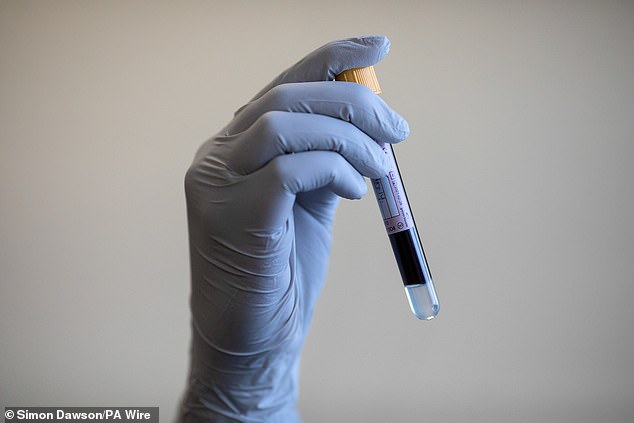Men can now be screened for prostate cancer on the high street – as Superdrug becomes the first pharmacy to offer an £80 test




Men can be screened for prostate cancer on the High Street for the first time after Superdrug launched a new testing service.
The health and beauty retailer is offering the service for £79 at 80 stores with health clinics across the UK.
The blood test, which tests for levels of prostate-specific antigen PSA, is performed by a nurse and results are available within two days.
Anyone whose results are flagged as concerning will be referred to their GP for further testing, a spokesperson said.
Experts hope the service will increase the availability of the tests, which are not routinely offered by doctors.
In accordance with NHS guidelines, it is not recommended for patients under the age of 50 unless there is a family history of prostate cancer or they are of black ethnicity, both known risk factors.
Niamh McMillan, Superdrug’s Pharmacy Superintendent said: ‘By introducing our new PSA blood testing service across our 80 major health clinics, we hope more men will feel encouraged and comfortable to prioritize their health and get themselves checked.’
The spotlight was on Olympian Chris Hoy after he urged more younger men to be tested for the disease, which kills 12,000 men a year in Britain.

Anyone whose results are flagged as concerning in Superdrug will be referred to their GP for further testing, a spokesperson said.

A large-scale study is underway in Britain to test the effectiveness of diagnostic techniques, but could take up to ten years to complete
His terminal diagnosis saw visits to the NHS prostate cancer symptoms page increase almost sevenfold last month.
Under NHS guidelines for England, anyone can request a PSA test from their GP if they are over 50 years of age.
But there is reluctance among some because of what many now say are “outdated” fears about the test’s accuracy, which has led to a postcode lottery in diagnoses and care.
Charities say recent advances in the way prostate cancer is diagnosed on the NHS means it is safer and more accurate than ever.
Patients with elevated PSA levels are referred for a pre-biopsy MRI, followed by a biopsy if the scan shows abnormalities, reducing the risk of false positives and unnecessary testing and treatment.
They are calling for a targeted national screening program to ‘remove the current pressure on men to seek out the tests themselves’.
A large-scale study is underway in Britain to test the effectiveness of diagnostic techniques, but it could take up to ten years to complete.
Oliver Kemp, CEO of Prostate Cancer Research, said the new service shows increasing proactivity among men when it comes to protecting their prostate health.

Under NHS guidelines for England, anyone can request a PSA test from their GP if they are over 50 years of age
He said: ‘This rising demand for accessible testing is being fueled by celebrities opening up about their diagnoses and increasing awareness of the life-saving benefits of early disease detection.
‘However, to achieve a significant reversal of prostate cancer death rates in Britain, we must ensure that men, especially those at highest risk of the disease, are offered tests as part of a national screening programme.’
Amy Rylance, deputy director of Health Improvement at Prostate Cancer UK, questioned its use, saying anyone with concerns should also visit their GP.
She said: ‘It may seem attractive to be able to access PSA testing at your leisure, regardless of the cost.
‘But if your result is higher, you should still go to your GP for a referral for further testing. Your GP will probably want to repeat the PSA blood test before deciding what to do next.’




